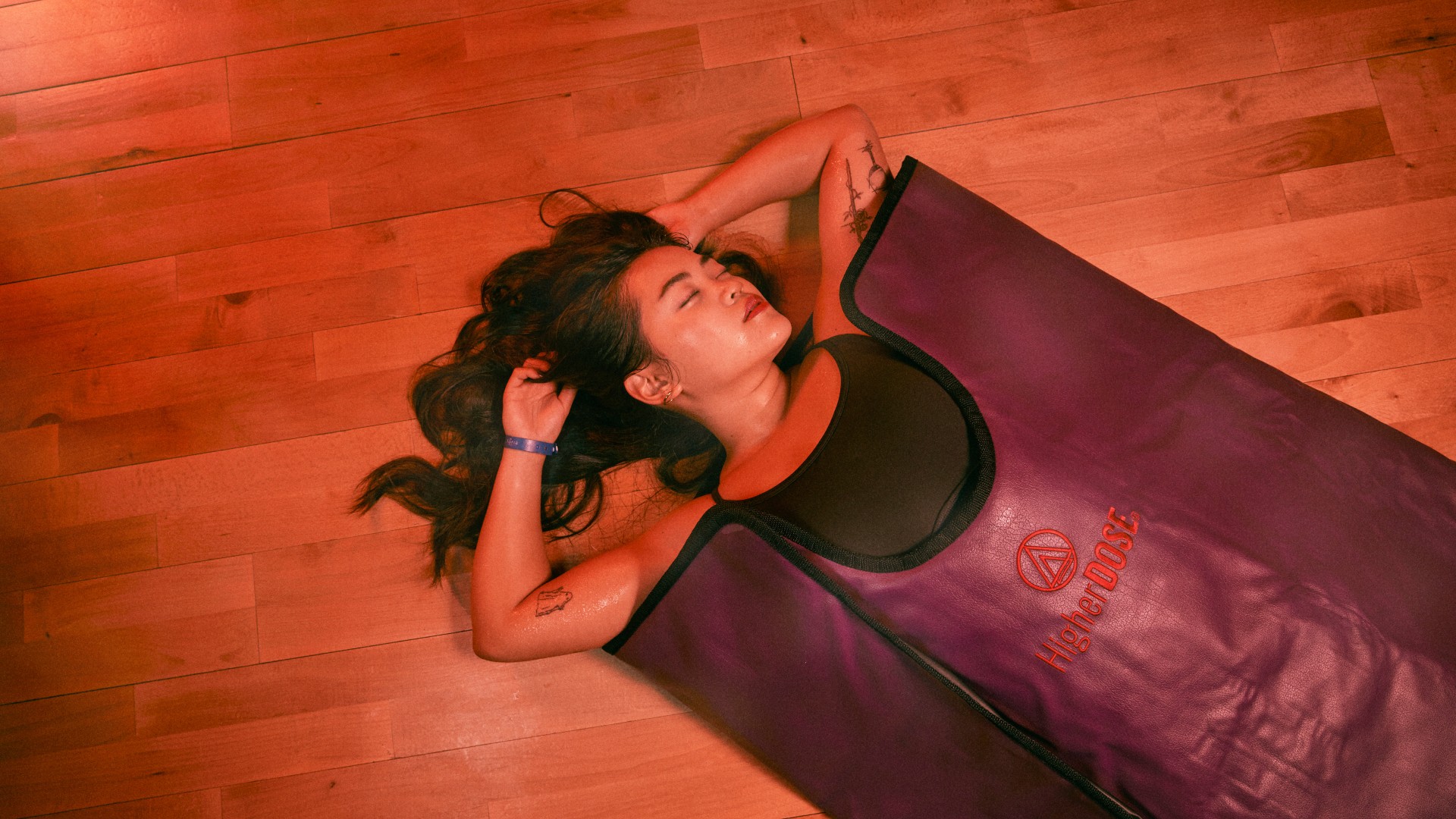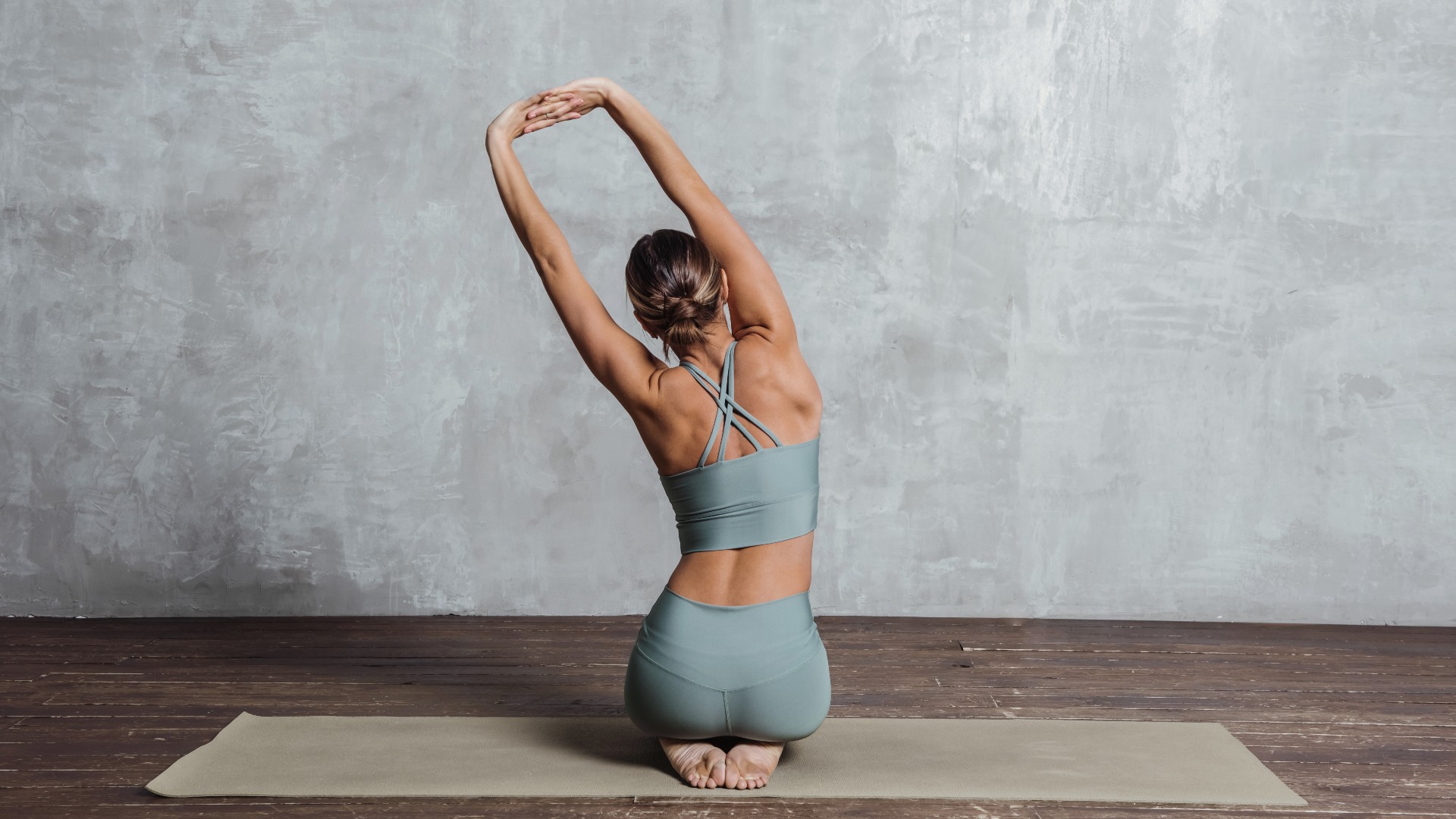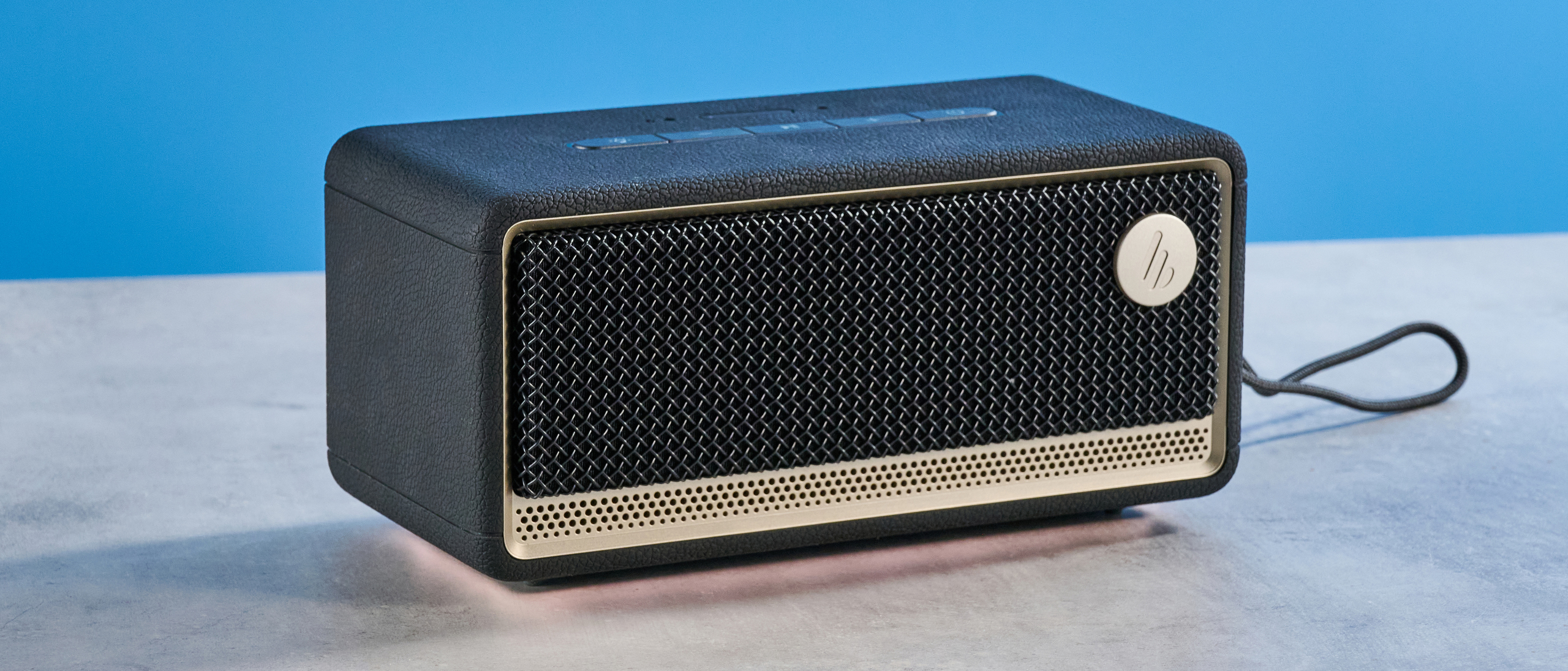
If someone asked you to try “The World’s Easiest Workout,” you would, wouldn’t you? Having been told I could burn up to 600 calories in just 30 minutes by doing nothing much at all, I could hardly turn down the opportunity to try it for myself.
The session in question is quite literally named “The World’s Easiest Workout” and hails from Gymbox — a fitness brand known for introducing quirky, novelty guest workouts to members, sometimes based on leading fitness trends.
But too intrigued to turn down such an opportunity to flex my journalistic muscles and investigate, I showed up willing. And, instead of dumbbells and kettlebells, I found stretches and a sauna blanket. Here’s what happened when I tried “The World’s Easiest Workout” and why the results surprised me.
What is "The World’s Easiest Workout"?
The disruptive gym brand ensures you barely have to move a muscle. The 30-minute wellness class is broken into stages; you’ll start with some gentle stretching to “get the blood pumping,” then slip inside a HigherDOSE infrared sauna blanket that slowly cranks up to 70°C.
Meanwhile, the instructor guides you through a series of breathing activities, body scans and guided visualization for tension relief. Think of it as a mental and emotional workout.
My instructor explains that afterward, we may feel similar to having finished a punishing exercise-based activity — think all the sweat, flush and glow without the DOMS.
Gymbox claims the workout can raise your heart rate to 150 beats per minute (bpm) and burn up to 600 calories, making it “the perfect workout during colder months.” Struck by those stats, I dived in.
Get instant access to breaking news, the hottest reviews, great deals and helpful tips.
I tried ‘The World’s Easiest Workout’ — here’s what happened

Here’s what went down when I cocooned myself in a sauna blanket.
Phase 1: Stretching
We kick things off with a gentle stretching routine designed to prime the body for heat, moving through popular yoga poses such as cat-cow and downward dog and some intuitive movements led by the class instructor.
From here, we practiced several breathing techniques before the big moment arrived; entering the sauna blankets. Starting at a fairly mild and comfortable heat (level 5 of 8), I slotted into my blanket, reminiscent of sliding a Pop-Tart into the toaster. Ready to cook, we moved to the next phase.
Phase 2: Body scanning and breathwork
Having started with our legs enveloped, we then proceeded to post our bodies into the sauna blanket as gracefully as a letter into an envelope. As the heat began to creep up, we moved from breathwork to body scanning, which Gymbox says helps you "become aware of your mind-muscle connection."
Our instructor encourages us to "squeeze and release" by tensing a particular muscle group and then releasing it again. I’ve heard this technique used in meditation circles before, known as progressive muscle relaxation, and it aims to reduce stress and tension in the body, working with muscles from head to toe.
Phase 3: Beat the heat
Once the breathing exercises are finished, the blankets reach maximum heat. We’re encouraged to focus on our breathing and any sensations that arrive as we spend the final minutes overcoming the mental challenge of the growingly uncomfortable temperatures.
And then just like that, it’s all over and we can emerge back into the world.
Do sauna blankets work?
Gymbox refers to a review published by the Mayo Clinic to estimate the average heart rate you can expect from sauna bathing — 120-150bpm — and links the practice to benefits like reduced blood pressure, better circulation and blood flow, muscle relaxation, and improved cardiovascular health.
How long or often you’d need to expose yourself for, or at what temperature, is up for debate. UCLA Health suggests you could benefit from “traditional” sauna bathing sessions 4-7 times per week for no more than 20 minutes, but opinions vary, and HigherDOSE recommends 30-45 minutes using a blanket. It also depends on the type of sauna you use — not necessarily sauna blankets.
I can’t quantify the data because it’s strongly advised that you don’t wear wearables in the sauna blankets. That said, I didn’t feel my heart rate rising significantly, although the calming breathing techniques could play a role here.

Gymbox also cites a study that suggests a 30-minute infrared sauna session could burn as many as 400-600 calories while aiding muscle recovery. While there’s some evidence that thermal therapy can be beneficial for muscles and relaxation, there’s limited research on the efficacy of sauna blankets as a whole, and I couldn’t find evidence that this session could achieve that many calories.
It’s nearly impossible to put a blanket number on calorie burn for any type of workout or therapy — it’s one of the toughest metrics to quantify in fitness. Your calorie burn potential relies on factors you can control — lifestyle, diet, sleep, and (to some degree) stress — and others you can’t, like genetics and metabolism.
More recent studies like a review in Frontiers in Physiology suggest your gut microbiome impacts most aspects of health, including metabolism. So I’m instantly wary of a workout that stamps 600 calories on the label and says it's so. I wasn’t under any illusion I’d burn this amount of calories, and I’d be surprised if I got close.
How did I feel afterward?
All the same, I’d take any opportunity to do some meditation from a cozy sauna blanket, and it was deeply relaxing. Although I felt warm, I didn’t sweat, and my heart rate remained pretty normal. As I reluctantly emerged from my heat coffin (or sauna blanket), I didn’t feel much different physically, except a bit lightheaded. Mentally though, I felt calmer and slower, which I liked, but it didn’t resemble the post-workout endorphins that flow after a tough session.
My instructor tells me the session provides the “dose” in “HigherDOSE” which refers to dopamine, oxytocin, serotonin and endorphins — all feel-good hormones associated with exercise, boosting mood and wellbeing. It was a breath of fresh air to take an hour out of the day to meditate, gently stretch and benefit from heat therapy, but I wouldn’t dress it as a workout, and I’d position it as a meditation.
But with all said and done, damn it, I still felt kind of great afterward.
More from Tom’s Guide
- I've been teaching weightlifting for years, 3 ways to build strength and muscle using light weights
- Forget triceps dips, I did kettlebell skull crushers every day for a week, here's what happened
- Forget crunches — you only need a kettlebell and 4 exercises to strengthen your core

Sam Hopes is a level 3 qualified trainer, a level 2 Reiki practitioner and fitness editor at Tom's Guide. She is also currently undertaking her Yoga For Athletes training course.
Sam has written for various fitness brands and websites over the years and has experience across brands at Future, such as Live Science, Fit&Well, Coach, and T3.
Having coached at fitness studios like F45 and Virgin Active and personal trained, Sam now primarily teaches outdoor bootcamps, bodyweight, calisthenics and kettlebells.
She also coaches mobility and flexibility classes several times a week and believes that true strength comes from a holistic approach to training your body.
Sam has completed two mixed doubles Hyrox competitions in London and the Netherlands and finished her first doubles attempt in 1:11.
 Club Benefits
Club Benefits





